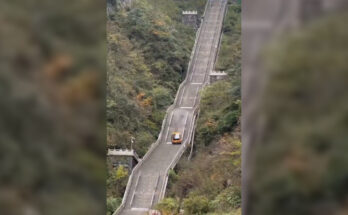Bologna, November 14 (askanews) – An afternoon of discussion and innovation, saying that safety arises not only from rules, but from people. And that training, when it becomes experience, can really change the way we work. It’s not just a regulatory obligation, but also an opportunity to rethink safety in the workplace. This is the spirit of the seminar “Training and new State-Territory Agreements: successful technical solutions and experiences”, promoted by the Bureau Veritas group, which took the field with its Department dedicated to Behavioral Training and with its companies specialized in workplace safety topics, Bureau Veritas Nexta and Contec AQS and held at the Granarolo Theatre, on the outskirts of Bologna. The meeting, which is free and open to the public, proposes a new approach to corporate training, where theory gives room to real experience: from the classroom to the construction site, obligations are transformed into moments of participatory learning.
Inspired by real judicial processes, the meetings turn the training into a theatrical performance: prosecutors, lawyers and witnesses take turns appearing on stage, while the audience themselves actively participate as jurors. At the center of the debate are key issues such as behavioral training, safety on construction sites, organizational welfare and social responsibility. All elements that contribute to building a shared security culture are considered to be of true strategic value for the company’s growth.
We spoke with Claudia Strasserra, Chief Reputation Officer of Bureau Veritas Italia: “We wanted to talk about safety, explaining this word: fun. With the safety appeal, which is the proposal for safety training and implementation that we do, we really want to present a new way to involve people in safety issues. We call it safety appeal, safety enchantment. We firmly believe that, only by involving people, by involving also the most emotional part and not just the rational one, we can change the approach a little. Safety is not as a burden, as an obligation, but as a form of first responsibility towards ourselves and the people around us.”
And in an ever-changing context, training remains the first real tool to build a more conscious, safer and more humane future of work.



